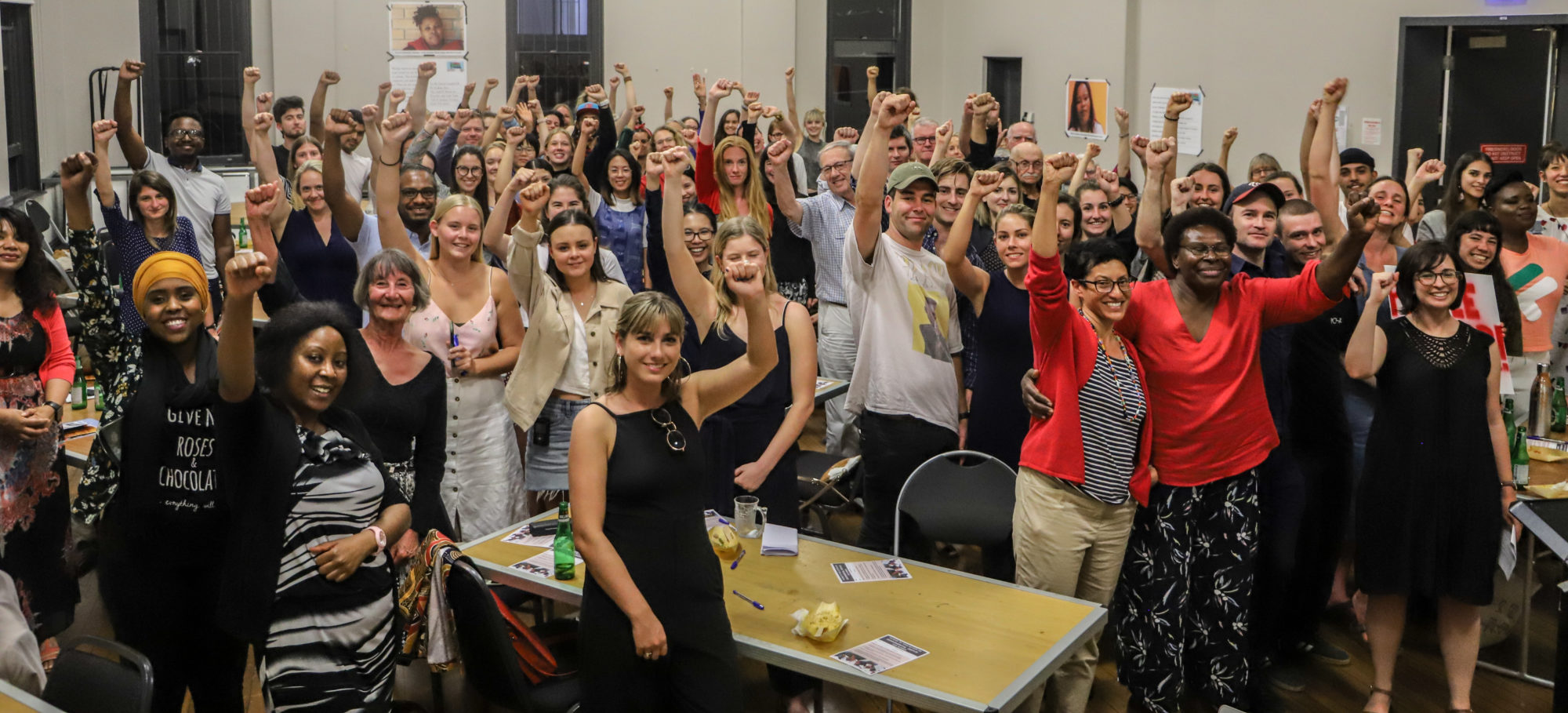International Women’s Day.
For many, it’s the one day a year that their friends will post inspirational feminist quotes on social media. For others, it’s the day their workplace will give a nod to feminism with a breakfast event. In the public sphere, it’s the day that women’s rights and women’s issues get the widespread public attention they deserve.
The work of dismantling the patriarchy, however, doesn’t start and end on one day alone – so why should our conversations? How do we make sure that meaningful discussions about feminism can take place on the other 364 days a year, and not just on 8 March?
As a global women’s rights organisation, this is a question we ask ourselves regularly at ActionAid Australia.
In order to address it, we’ve created this handy four-part post looking at some common questions around feminism, intersectionality and our human rights based approach. It’s based on a longer Intersectional Feminist Discussion Toolkit on our website which we encourage you to check out.
You’re welcome!
How do you define feminism?
Feminism can mean different things to different people, but the definition we reference is:
“If someone is a feminist, they believe in gender equality, that everyone should be equal, and have equal access to the same opportunities as one another, rather than be dictated or discriminated by their sex or gender. Feminism is recognising the systematic historical oppression of women through various modes of discrimination and social norms, such as patriarchy. Feminists recognise that all genders suffer, and that breaking down the patriarchy and gender roles will benefit everyone.”
One of our favourite conversation starters is this powerful slam poetry video from America that highlights some of the deep-rooted issues of patriarchy. It also introduces the concept of intersectionality.
How do you define intersectional feminism?
‘Intersectional feminism’ is a term more widely discussed now than ever before – but if asked to explain it, many still struggle.
The definition we like was coined in 1989 by Kimberle Crenshaw, civil rights advocate and law professor:
Intersectional feminism is an understanding that everyone has specific experiences of their gender, and recognises the different identities and challenges they may face or that make them vulnerable.
For it to achieve its stated aims, feminism needs to accommodate the different needs, experiences and identities of different people, using an intersectional approach to recognise how privilege, power and circumstance may affect your understanding and perspective.
Intersectional feminism is about acknowledging how people’s various identities, experiences, and vulnerabilities intersect and overlap with their experience of their gender – causing them to experience inequality and injustice differently.
Youtuber @chescaleigh uses animation to explore intersectionality through the story of a snail and a caterpillar:
What is ‘privilege’? Do I have it?
We can’t have a conversation about intersectional feminism without talking about privilege.
We define privilege as access to or enjoying rights or advantages simply by membership of a particular group or identity. These privileges are often unearned and/or undeserved
Buzzfeed have created a powerful video that visualises how your life experiences and multiple identities can change how you are treated and impact your access to opportunities. This is a great conversation starter.
https://www.facebook.com/BuzzFeedOz/videos/1936578223240531/
If you’re ready to do some further self-reflection and find out more about your own privilege, Buzzfeed also have a quiz you can take to ‘measure your privilege.’ We definitely recommend it!
Why are privilege and intersectionality important within activist movements?
Intersectionality in a movement is about creating noise for issues that may not directly affect us, but are important to the causes we believe in and stand behind.
Black Lives Matter co-founder Alicia Garza articulates this concept well, by saying:
“Movements are meant to be complicated and messy, they are meant to have contours, to have curves, they’re meant to be like mosaics. It’s not meant to be a one size fits all.”
As a feminist global justice organisation, at ActionAid Australia it is important that we are always recognising the multi-faceted and complex nature of the issues women face, and that we are tackling them in ways that are informed, respectful, and put the voices and needs of women at the centre.
This interview with Alicia Garza eloquently highlights the importance of intersectionality within social justice movements.
How can I be an intersectional feminist ally?
Being an intersectional feminist means being committed to equality for all and using your position of privilege to elevate the voices of those who have less, rather than talking over them.
It also means taking personal responsibility for educating yourself. Read articles, listen to people’s stories, pay attention to your own words and actions.
One of the key pillars of ActionAid’s Human Rights Based Approach is Solidarity. This means not speaking over or for people, but standing behind them. It involves strengthening and building movements for change that are led by those most affected by poverty and exclusion, and building collective power to demand change. It recognises those identities most at risk or vulnerable to oppression and discrimination, and involves them in decision-making.
Where to now?

Women’s rights and feminism should be an everyday conversation, not just an annual event.
Now you have the knowledge, we hope you feel fired up and ready to talk intersectional feminism with your friends, families, and colleagues!
Remember – this is just a taste of what is in our full Intersectional Feminist Discussion Toolkit, so be sure to give it a read.
Where will you take the conversation next?